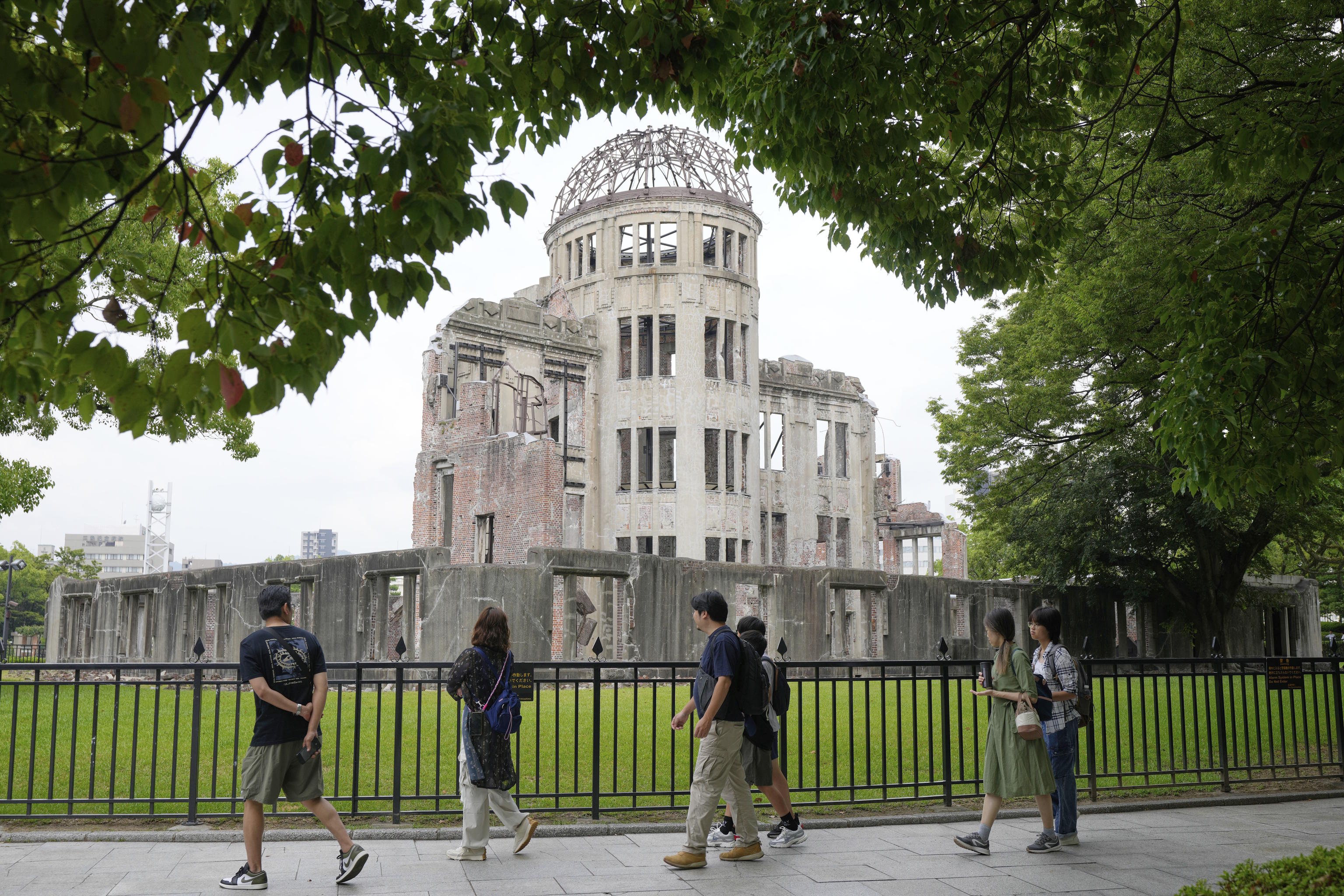A charred shoe worn by a seven-year-old girl; human hair remnants; melted combs, charred backpacks, and pieces of unsent letters; school uniforms and kimonos disintegrated by radiation; a wristwatch stopped at 08:15, the exact time when the entire city was engulfed by a massive fireball.
The Hiroshima Peace Memorial Museum, besides being a powerful reminder of the horrors of the atomic bomb, aims to act as a moral compass pointing towards a future without nuclear weapons. Tragedy objects are displayed in showcases alongside drawings and manuscripts of the survivors, known as hibakusha.
"A light like a thousand rainbows exploded before my eyes. The sun fell, and history shattered. The sky collapsed, and metal melted. The city turned into a forest on fire. I, a girl, was a shadow walking among shadows, among charred bodies that still whispered my name. I didn't cry. Nor could I speak a word. I had ash in my throat."
The author of these lines, Bun Hashizume, 94 years old, has written some of the notes and poems that can be read on the museum walls. This elderly woman is a hibakusha. She was 14 years old when on August 6, 1945, in the final throes of World War II, an American atomic bomb, called Little Boy, was dropped from an American B-29 aircraft and exploded at low altitude over the city of Hiroshima. With an explosive force equivalent to 16 kilotons of TNT, it destroyed most buildings and left approximately 140,000 dead, 80,000 immediately and another 60,000 who died later due to burns and radiation-related illnesses.
When Hashizume turned 70, she became an activist for the abolition of nuclear weapons and began traveling to many countries to tell her story and make everyone understand that what happened in Hiroshima must not happen again. In her talks, the survivor speaks of the threat from North Korea, of Russia's actions regarding Ukraine, the danger of regimes like Iran acquiring weapons of mass destruction, or the risks of liberal democracies opting for rearmament over diplomacy.
On the eve of the 80th anniversary of the bombing of Hiroshima, nuclear tensions are at the forefront. In the last three months, American fighter jets have attacked nuclear facilities in Iran; India and Pakistan, two nuclear powers, were on the brink of total war after several direct military clashes with artillery and bombings; and Kim Jong-un's regime continues to advance its nuclear program with Russia's assistance.
Even in Japan, where a couple of years ago a historic rearmament was approved, breaking with the pacifist tradition inherited from the post-war period, there are increasingly more voices, especially among retired officers of the Self-Defense Forces and the growing far-right movements, advocating breaking the nuclear taboo given the volatile security environment (the country is surrounded by China, Russia, and North Korea, three nations with nuclear weapons).
The latest report from the Stockholm International Peace Research Institute (SIPRI), one of the leading centers on defense and armament, pointed out that nuclear-armed states are strengthening their atomic arsenals and abandoning arms control agreements, ushering in a new era of threats that has ended the arms reduction policy established after the Cold War.
Researchers state that the United States and Russia, which possess around 90% of all nuclear weapons (5,459 in Moscow and 5,177 in Washington), relatively maintained the sizes of their respective active warheads last year, but China has accelerated the increase of its nuclear arsenal by around 100 new warheads per year, currently storing around 600.
"Of the total global inventory of approximately 12,241 warheads as of January 2025, around 9,614 were in military arsenals for potential use," states Hans M. Kristensen, a SIPRI researcher. "Global tensions have led the nine nuclear-armed states (the United States, Russia, the United Kingdom, France, China, India, Pakistan, North Korea, and Israel) to plan to increase their stockpiles," he continues.
For decades, on every August 6, solemn ceremonies in Hiroshima are led by the hibakusha. Just like in the tributes on August 9 in Nagasaki, where a second American bomb struck, killing about 74,000 people. The two atomic attacks led to Japan's surrender on September 2, 1945. On each anniversary, elderly survivors observe a minute of silence for the victims and call on world leaders for nuclear disarmament.
At these events, Nihon Hidankyo is always present, the organization of hibakusha that won the Nobel Peace Prize in 2024 for, as the Swedish committee explained, its efforts to achieve a world free of nuclear weapons and to demonstrate, through testimony, that this weaponry should never be used again. "I am infinitely sad and angry because the nuclear taboo is threatened to be broken," expressed one of the co-presidents of this organization founded in 1956, Terumi Tanaka (93 years old), during the Nobel ceremony.
Tanaka, a Nagasaki native, was 13 years old when his city was bombed, with the explosion's epicenter just three kilometers from his home. Five members of his family died in the blaze. "I helped my mother incinerate with our own hands the body of her sister. Three days after the bomb, we climbed a hill, dodging human remains scattered everywhere. Upon reaching the top, we could see the city from above and realized that there was absolutely nothing left, everything was black and charred," recounts the survivor.
Another leader of the group, Toshiki Fujimori (81 years old), from Hiroshima, has no memories of the massacre as he was just a few months old, but being younger than most surviving victims, he still travels across Japan and other countries with harsh stories to raise awareness about the terrible consequences of using nuclear weapons.
